In this issue:
- What's On - Forthcoming events from November 2012 onwards
- What's New - New reports and initiatives since the last issue
- What's What - The 2012 Digital Preservation Awards
- Who's Who - Sixty Second Interview with Ant Miller, BBC
- One World - Digital Preservation in Saudi Arabia, Mohamed Ba-Essa and Richard Johnson, King Abdullah University of Science and Technology
- Your View? - Comments and views from readers
What's New is a joint publication of the DPC and DCC
What's On
The DCC have a number of events coming up that may be of interest to you. For further details on any of these, please see our DCC events listings at http://www.dcc.ac.uk/events/. You can also browse through our DCC events calendar to see a more extensive list of both DCC and external events.
APA Conference
6-7 November 2012
http://www.alliancepermanentaccess.org/index.php/event/apa-2012-conference-6-7-nov-esaesrin-frascati/
This year’s APA conference addresses the theme “Value from data now and into the future” and brings together leaders in the field from Europe and around the world, including academic, large scientific research, industrial and commercial stakeholders.
How to set up and run a data service: the challenges of social science data
8-9 November 2012
http://www.data-archive.ac.uk/news-events/events.aspx?id=3295
This is a once-a-year opportunity to go behind the scenes and learn first hand from specialists at the UK Data Archive. how to set up and run an archive. Over one and a half days, 8 and 9 November 2012, participants will learn about the strategies and practices used in the Archive's daily work, with a focus on storing and sharing social science data, including microdata, aggregate, qualitative and historical data. The Archive has over 40 years experience in selecting, ingesting, curating and providing access to data. We are a designated Place of Deposit for The National Archives and are internationally acknowledged experts in this field.
Developing Data Management Expertise in Research
6 November 2012
http://www.lshtm.ac.uk/newsevents/events/2012/11/developing-data-management-expertise-in-research---half-day-event
The focus of the workshop will be upon sharing good practice for the management and sharing of research data. It will bring together research data experts and research funders to discuss evolving standards for maintaining research data and making it available for use, as well as strategies that may be adopted to simplify the process.
OPF Hackathon: Emulation, learn from the experts
13-15 November 2012
http://opfemulation.eventbrite.co.uk
This event will consider emulation from a practical implementation perspective. The purpose is not to repeat the academic discussion on emulation as a preservation strategy - nor to build an emulation stack for full-fledged preventive preservation. The hackathon aims to focus on emulation as a preservation method for long-term access, working with real-life test-cases.
RDMF9 - Shaping the infrastructure: Technology aspirations for research data management
14 - 15 November 2012
http://www.dcc.ac.uk/events/research-data-management-forum-rdmf/rdmf9-shaping-infrastructure
Examples of technological change designed to assist the producers, users and managers of research data are becoming increasingly prevalent. RDMF9will consider not only the technology solutions that are being offered but also the policies and players who are shaping them.
CILIP's RFID in Libraries Conference 2012
15 November 2012
https://www.cilip.org.uk/rfid2012/pages/register-now.aspx
This year's CILIP RFID in Libraries Conference examines the changes that have taken place since 2011 and focuses closely at the issues surrounding migration to the new data standard. At a time when many existing RFID users of the technology are asking "should I convert?", this conference will shares the experiences and rationale of some of those who have already made that decision.
Major innovations in the field of administrative data linkage and analysis conference
16 November 2012
http://www.adls.ac.uk/wp-content/uploads/ADLS-Record-Linkage-Conference-Information.swf
Administrative data has many advantages for social science research. Typically datasets are very large, can cover long time periods, are low cost and regularly updated. The linkage of administrative data to other data sources provides further power and utility for research. However, such linkage is generally problematic with legal, governance, access and ownership barriers to overcome.The Administrative Data Liaison Service will be hosting a one day conference to highlight major innovations in the field of administrative data linkage and analysis that are designed to overcome some of these problems. The ESRC will also provide a perspective on the future of administrative data as a research resource, drawing on the emerging recommendations from the Administrative Taskforce.
DCC Roadshows - London and Dundee
20 November 2012
http://www.dcc.ac.uk/events/data-management-roadshows/
The DCC roadshows will be heading to London on November 201th and dundee on December 5-6. The roadshows are designed to allow institutions in the UK to prepare for effective research data management and understand more about how the DCC can help. You also get to hear from speakers local to you about how they have tackled some of these issues.
Hydra UK event - flexible repository solutions to meet varied needs
22 November 2012
http://projecthydra.org/2012/10/20/hydra-uk-event-london-school-of-economics-and-political-science-thursday-22nd-november
The international Hydra project started in 2008 with the aim of producing ways in which flexible repository solutions might be enabled and exploited through configurable interfaces. As part of the Hydra’s community engagement, a Hydra UK event is now being organised to showcase the work of those institutions in the UK using and exploring Hydra for their own needs, and provide a forum for discussion of solutions for digital content management and preservation.
DPC AGM and Digital Preservation Awards Ceremony
3 December 2012
The Annual General Meeting of the Digital Preservation Coalition will take place at the Wellcome Library, Euston Road, London on the 3rd of December 2012. This will be followed in the evening by the Digital Preservation Awards Ceremony. Four awards will presented this year to mark the DPC's 10th anniversary.
4th Annual European DDI User Conference (EDDI12): DDI - The Basis of Managing the Data Life Cycle
3-4 December 2012
http://www.eddi-conferences.eu/eddi12
The meeting will bring together DDI users and professionals from all over Europe and the world. Anyone interested in developing, applying, or using DDI is invited to attend and present.
Data Seal of Approval Conference
10 December 2012
http://www.datasealofapproval.org/?q=node/86
The Data Seal of Approval is an initiative to provide basic certification to data repositories. Receiving the DSA signifies that data are being safeguarded in compliance with community standards and will remain accessible into the future. The DSA and its quality guidelines are of interest to researchers, organizations that archive data, and users of the data.
Conference topics will include:
- Information on the Data Seal of Approval, including how to apply for the DSA
- An overview of the European Framework for Audit and Certification of Digital Repositories
- Case studies
Trusted Digital Repositories and Trusted Professionals
11-12 December 2012
http://www.rinascimento-digitale.it/conference2012
Following the success of previous conferences, Fondazione Rinascimento Digitale is delighted to announce the 3rd edition of the “CULTURAL HERITAGE on line - Trusted Digital Repositories and Trusted Professionals” Conference (http://www.rinascimento-digitale.it/conference2012 ) that will be held on 11-12 December 2012 in Florence, with a rich program of specialised events and tutorials. This year the focus is on competences and skills necessary to manage trusted digital repositories. In particular the following topics will be investigated:
- how to preserve digital contents in a trusted digital repository
- how to understand cultural heritage and digital humanities specific requirements
- long term preservation policies for trust and sustainability
- the role of standards and the importance of cooperation among user communities
- user needs for training and re-skilling of professionals in cultural institutions
- a focus on the Italian policy framework for the cultural and scientific heritage
Infrastructure, Intelligence, Innovation: driving the Data Science agenda 8th International Digital Curation Conference 2013
14-16 January 2013
http://www.dcc.ac.uk/events/idcc13
International Digital Curation Conference (IDCC) brings together those who create and manage data and information, those who use it and those who research and teach about curation processes. Our view of ‘data’ is a broad one – video games and virtual worlds are of just as much interest as data from laboratory instruments or field observation. Whether the information originates in the arts, humanities, social or experimental sciences the issues faced are cross-disciplinary. IDCC13 will be held in mainland Europe for the first time and the Digital Curation Centre are delighted to have support from two major institutions in the Netherlands - Data Archiving and Networked Services (DANS) and Delft University of Technology (TU Delft). IDCC13 is organised by the Digital Curation Centre UK, in partnership with the Coalition for Networked Information (CNI) and with sponsorship from Microsoft Research.
What's New
For more information on any of the items below, please visit the DCC website at http://www.dcc.ac.uk.
ORCID launch
http://about.orcid.org/
ORCID, the Open Researcher and Contributor ID initiative, has been launched recently and can now be used by researchers to create a profile and ID for themselves.
Sustainability Exchange - a new ground-breaking knowledge bank
http://www.sustainabilityexchange.co.uk
Leading organisations from across the further and higher education sectors have joined forces to create the a single hub for sharing best practice in green ICT.Combining resources and experience from 23 of the country’s top sustainable development and education bodies, the Sustainability Exchange will pioneer the UK’s first centralised information portal and online community for the sector, sharing a wealth of information that is available to everyone.
IMCW 2013 - call for papers
http://imcw2013.bilgiyonetimi.net/
Contributions are now being sought for the 4th International Symposium on Information Management in a Changing World" will take place in the Strand Hotel, Limerick, Ireland, from September 4-6, 2013. IMCW2013 aims to bring together information professionals, computer and information scientists, business people and engineers to discuss the implications of cloud computing on information management and to contemplate on how to design and develop innovative and collaborative information services beyond the cloud. Contributions can be theoretical as well as technical and practical. Informative case studies are also welcome.
New study: The Value and Impact of the British Atmospheric Data Centre (BADC)
http://www.beagrie.com/badc.php
This new study and collaboration between the Science and Technology Facilities Council (STFC), Charles Beagrie Ltd (Neil Beagrie), and the Centre for Strategic Economic Studies Victoria University (Prof John Houghton) on the value and impact of the British Atmospheric Data Centre (BADC).
NISO Publishes Themed Issue of Information Standards Quarterly on Linked Data for Libraries, Archives, and Museums
www.niso.org/publications/isqniso.org/publications/isq
The National Information Standards Organization (NISO) announces the publication of a special themed issue of the Information Standards Quarterly (ISQ) magazine on Linked Data for Libraries, Archives, and Museums. ISQ Guest Content Editor, Corey Harper, Metadata Services Librarian, New York University has pulled together a broad range of perspectives on what is happening today with linked data in cultural institutions.
Scientists, Foundations, Libraries, Universities, and Advocates Unite and Issue New Recommendations to Make Research Freely Available to All Online
http://www.soros.org/openaccess/boai-10-recommendations
In response to the growing demand to make research free and available to anyone with a computer and an internet connection, a diverse coalition today issued new guidelines that could usher in huge advances in the sciences, medicine, and health. The recommendations were developed by leaders of the Open Access movement, which has worked for the past decade to provide the public with unrestricted, free access to scholarly research—much of which is publicly funded. Making the research publicly available to everyone—free of charge and without most copyright and licensing restrictions—will accelerate scientific research efforts and allow authors to reach a larger number of readers.
Journal Research Data Policy Bank (JoRD) Blog now available
http://jordproject.wordpress.com/
Journal Research Data Policy Bank (JoRD) is a JISC funded initiative conducting a feasibility study into the scope and shape of a sustainable service that will collate and summarise journal policies on Research Data to provide researchers, managers of research data and other stakeholders with an easy source of reference to understand and comply with these policies. We have now set up a blog for interested parties to keep up-to-date with any developments.
Queensland Government Digital Continuity Strategy
http://www.archives.qld.gov.au/Recordkeeping/DigitalContinuity/Pages/Default.aspx
Queensland State Archives (QSA) is pleased to advise their digital continuity strategy strategy has been finalised and published on Queensland State Archives’ website. The Queensland Government Digital Continuity Strategy sets out strategic activities and principles to guide a consistent approach to ensuring the continued accessibility of digital records throughout their life, in the context of ongoing technology obsolescence. Following this release, Queensland State Archives will develop over the coming years a program of work to implement the strategy.
Call for proposals: RDAP13
http://www.softconf.com/asis/RDAP-13/cgi-bin/scmd.cgi?scmd=basicSubmit
RDAP13, the fourth annual Research Data Access and Preservation Summit, takes place April 4-5, 2013 in Baltimore, Maryland. We are currently accepting proposals (max. 300 words) for panel presentations, interactive posters, and lightning talks. Themes for RDAP13 were selected by this year’s planning committee with input from previous years’ attendees and RDAP community members.
GSK announces further initiatives to advance openness and collaboration to help tackle global health challenges
http://www.gsk.com/media/press-releases/2012/GSK-announces-further-initiatives-to-tackle-global-health-challenges.html
GlaxoSmithKline (GSK) today announced new measures to further advance its commitment towards greater openness, transparency and collaboration. Speaking at a meeting hosted by the Wellcome Trust in London today, GSK CEO Sir Andrew Witty will outline new steps to build on the encouraging signs of progress resulting from GSK’s ‘open innovation’ approach to R&D, designed to help develop new solutions for the world’s most serious health challenges.
DCC Briefing Paper: Citizen Science
http://www.dcc.ac.uk/resources/briefing-papers/citizen-science
Citizen Science is a term used for initiatives in which volunteers, including the general public and enthusiasts, engage in research-related tasks to collect information or participate in scientific research in other ways (e.g. observation, measurement or computation). As well as increasing the resources available to collect or analyse research data, citizen science makes a positive contribution to the public’s engagement with science. This briefing paper looks at some of the key issues associated with a citizen science approach to research data management.
New DPC Report on Intellectual Property Rights for Digital Preservation
http://dx.doi.org/10.7207/twr12-02
Legal issues, in particular the process of obtaining copyright clearance for preservation and access of archived material, can contribute significantly to the cost and complexity of digital preservation. It is an area where the wider preservation community often needs to make its case with government and other legislators. This is the third report in the DPC technology watch series to have been commissioned with Charles Beagrie Ltd as series editors. Five more reports are in development – on Preservation, Trust and E-Journals; Digital Forensics for Preservation; Preserving Computer Aided Design; Web Archiving; and Preservation Metadata.
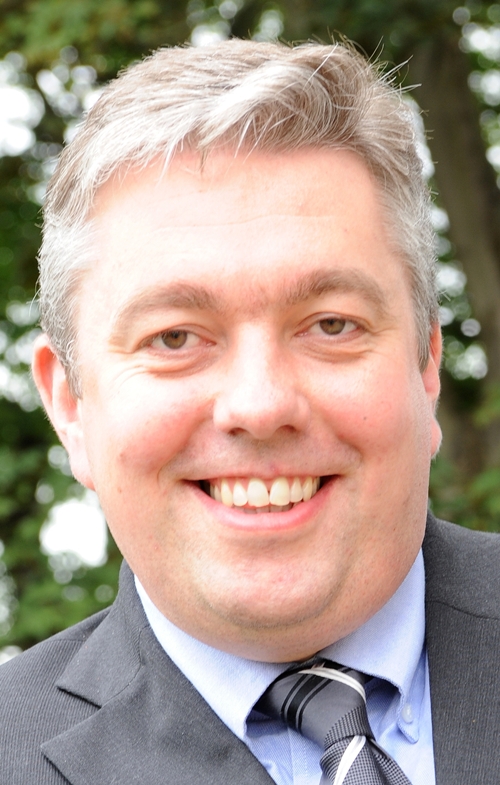 What's What - Digital Preservation Awards 2012: Finalists Announced
What's What - Digital Preservation Awards 2012: Finalists Announced
William Kilbride, Executive Director, DPC
There are very many parts of working for the DPC that I enjoy, but my absolute favourite part is the bi-annual digital preservation award.
Being a judge on the award gives you a really clear and privileged insight into very many of the best projects and initiatives in digital preservation. The scope is as wide as possible and the range of proposals is international. It also has a strangely nostalgic feel to it. I've been a judge now on three occasions and every time the number of applicants has increased. Each time, we've looked back fondly on the previous winners and nominees and thought out loud - they were absolutely fantastic but would they have stood a chance this time round? It's a very particular statement of a fundamental truth about digital preservation in the recent past: that the number of initiatives and contributors has grown impressively, their quality and significance continues to increase, and the extent of their impact and ambition is expansive.
It seems like a long time since Maggie Jones set up the DPC office at the Science Park at the University of York. It's seems a long time since Neil Beagrie was Digital Preservation Programme Director with JISC, charged with helping to get this peculiar but important initiative off the ground. It seems like a long time since Lynne Brindley's keynote address at the CEDARS conference called for an 'independent and inclusive body' to co-ordinate effort 'to get digital preservation on the agenda of key decision makers and funders in terms they will understand'. It is a long time since the 'Warwick 2' workshop where JISC, BL and NPO called for the establishment of a 'National Digital Preservation Coalition'.
The DPC existed as a concept for several years before it was given corporate form so it's hard to pick a specific anniversary: but the first full board meeting of an independent agency happened in 2002 and we were officially launched at the House of Commons then too. So it's a fixed point in our corporate history. It's a testament to the hard work and energy of those involved in the early days that it took shape at all and it is all the more impressive that the basic model of membership that provides joined up and targetted action remains as strong. Indeed in hard economic climate the need to work together and the value of digital data is perhaps all the more apparent now.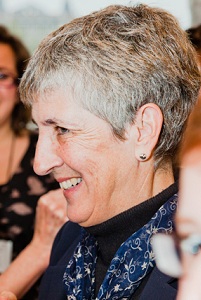
There has been a lot of progress in the ten years since the DPC was launched and there has been a great deal of work by a great many committed people. The progress is technological, organizational and public. We can shape more nuanced and more immediate warnings about the consequences of loss, we can point to success in incorporating preservation in policy, and we can deploy increasingly sophisticated tools to ensure that the mandate can be delivered.
We marked this progress with a short reception at the House of Lords at the start of October. It was a pleasure to be joined by so many people who have been friends and supporters of the DPC over the years and it was a pleasure also to welcome some new members into the fold. Lord McNally, until recently Minister of State at the Justice Department with responsibility for the National Archives praised the Coalition - and perhaps more importantly it's members - for the leadership they have shown. 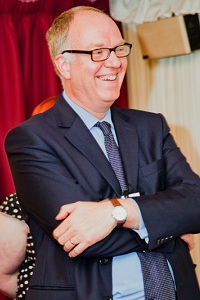
Richard Ovenden, chair of the DPC used his speech to look forward, setting five challenges for all agencies in the public and private sector in order that they can exploit the long-term value of their digital assets:
1. Do they know which data sets from the last decade are going to be valuable in the next?
2. Do they have robust plans for the long-term exploitation to business-critical, high-value data?
3. Do they have robust preservation plans to ensure long term access to data?
4. How are they going to recruit or train staff with skills in digital preservation ?
5. How can they collaborate more closely to meet the challenge of digital preservation?
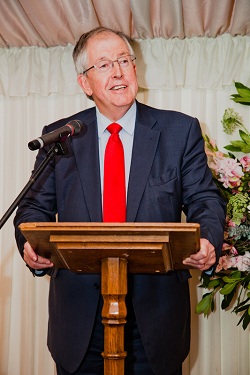 For me the best way to celebrate the accomplishments of the last decade is to look at the range and quality of activities now before us. That means, as far as the Digital Preservation Awards 2012 are concerned, everyone is a finalist. Everyone has some claim to be a winner. The digital preservation awards have been expanded this year to mark our 10th anniversary and the 10th anniversary reception gave us a wonderful opportunity to announce the finalists - many of whom were present. The winners will be announced on 3rd December but only after the membership of the coalition is invited to vote for their favourite initiatives and projects.
For me the best way to celebrate the accomplishments of the last decade is to look at the range and quality of activities now before us. That means, as far as the Digital Preservation Awards 2012 are concerned, everyone is a finalist. Everyone has some claim to be a winner. The digital preservation awards have been expanded this year to mark our 10th anniversary and the 10th anniversary reception gave us a wonderful opportunity to announce the finalists - many of whom were present. The winners will be announced on 3rd December but only after the membership of the coalition is invited to vote for their favourite initiatives and projects.
Finalists for the award in recognition of "an outstanding contribution to teaching and communication in digital preservation in the last 2 years":
Digital Archaeology from Story Worldwide
An exhibition that showcases landmark websites on the hardware and software of the day. The exhibition is a call to arms to the designers of the early web, encouraging them to archive their code while they still can. Originally put together as part of Internet Week Europe 2010, it garnered global press coverage from BBC, Wired Magazine, Fox News, WSJ, Discovery Channel, Reuters and many more. Such was its success that Story Worldwide were asked to put the exhibition on again at Internet Week New York 2011, where it attracted 12,000 visitors and sponsorship by Google.
Digital Preservation Training Programme from University of London Computer Centre
The Digital Preservation Training Programme (DPTP) is an entry-level, introductory course that develops critical thinking about digital preservation. DPTP teaches key concepts and models (including OAIS and the performance model), through practical examples and case studies, and through active participation in innovative exercises. It has been carefully designed to help all those working in information management understand effective approaches to the challenges of digital preservation, and enables students to assess the models and examples in the context of their own organisational requirements. There have been over 15 instances of the course (at least 2 per year), each with around 15-20 students.
Keeping Research Data Safe from Charles Beagrie Ltd and partners
At a time of increasing austerity and constrained budgets, demonstrating the benefits and understanding the costs of digital preservation are of paramount importance. This application focuses on the post-research adoption and communication activities for the Keeping Research Data Safe (KRDS) projects. These activities followed the final publication of the original research reports (KRDS1 and KRDS2) that concentrated on the costs and benefits of the digital preservation of research data in the UK.The adoption and communication activities consisted of two parts: testing and delivering a KRDS digital preservation Benefits Toolkit; and developing a KRDS Factsheet and User Guide.
The Signal from Library of Congress
The Signal is a blog sponsored by the Library of Congress, National Digital Information Infrastructure and Preservation Program. The blog covers a broad array of topics relating to digital preservation, including digital collections and research, education and training, outreach and events, personal archiving, publications and resources, and tools and infrastructure.
Finalists for the award in recognition of "an outstanding contribution to research and innovation in digital preservation in the last 2 years":
Data Management Planning Toolkit, The Digital Curation Centre and partners
The goal of preservation is reuse, and reuse of research data has compelling economic benefits that justify the cost of preservation. Funders, researchers and institutions recognise that effective planning is essential to select the right data for preservation and make it suitable for future reuse; data management plans (DMPs) are a means to this end. Since 2010, two groups in the US and UK have collaborated to share knowledge and create services providing structured means to produce these plans. DMP Online and DMPTool deal with the diverse requirements of disciplines, funders,publishers and institutions, achieving rapid uptake and global interest.
PLANETS Preservation and Long-term Access through Networked Services, The Open Planets Foundation and partners
The EU co-funded Planets project built practical services and tools to help ensure long-term access to digital cultural and scientific assets. The project brought together memory institutions, small businesses, major technology providers, and research institutions across Europe. It established the not-for-profit Open Planets Foundation to provide the digital preservation community with services, ongoing support, and a sustainable future for its Open Source results. Planets advanced the state-of-the-art in preservation planning, characterisation, and action. Today, national-scale cultural heritage institutions are piloting and deploying the Planets methods, tools, and services to ensure that their digital collections are accessible both today and tomorrow. Planets has permanently changed the digital preservation landscape by shifting the focus to practical, sustainable, interoperable digital preservation solutions that are soundly supported by practice-driven research.
TOTEM Trustworthy Online Technical Environment Metadata Registry, University of Portsmouth and partners
It is now becoming apparent just how important it is to keep information not just about digital objects themselves, but also about the computing environments in which they were created or ran. The TOTEM database allows user-friendly access to reliable information on versions of: file formats; related software and libraries, operating systems; and hardware. TOTEM is expandable, and can be implemented in various different ways, e.g. the University of Cologne have already converted TOTEM for use as a linked data registry. TOTEM is sustainable, with serious support from the digital preservation community via the DPC / OPF.
The KEEP Emulation Framework, Koninklijke Bibliotheek (National Library of the Netherlands) and partners
The Emulation Framework (EF) offers an end-to-end, automated, emulation-based, digital preservation strategy. It bridges the gap between novice computer users and technically challenging emulation-based solutions: it offers a convenient way to open old digital files and render them in their native computer environment. The EF automatically selects and runs the best available emulator to render the object. It combines existing emulation technology with a sophisticated workflow that automates the steps of defining and configuring hardware and software dependencies. Version 2.1.0 of the Emulation Framework is currently available as open source software under the Apache 2.0 license.
Finalists for the award in recognition of "the most outstanding contribution to digital preservation in the last decade":
Archaeology Data Service, University of York
The Archaeology Data Service supports research, learning and teaching with freely available, high quality and dependable digital resources. It does this by preserving digital data in the long term, and by promoting and disseminating a broad range of data in archaeology. Its operating model is underpinned by a pioneering charging policy which has allowed it to become a financially sustainable digital archive. The ADS promotes best practice in the use of digital data in archaeology and has published a series of Guides to Good Practice; it provides technical advice to the research community and supports the deployment of digital technologies.
PREMIS Data Dictionary for Preservation Metadata
Since winning the 2005 Digital Preservation Award, the PREMIS Data Dictionary has become the international standard for preservation metadata for digital materials. Developed by an international team of experts, PREMIS is implemented in digital preservation projects around the world, and support for PREMIS is incorporated into a number of commercial and open-source digital preservation tools and systems. PREMIS maintains XML schema to support implementation; engages in outreach around the world; and leads initiatives to develop guidelines and best practices for implementing the Data Dictionary. PREMIS is the international nexus for preservation metadata, and is recognized as a core standard for state-of-the-art digital preservation.
Pronom and Droid from The National Archives
Since the release of the first online version of the PRONOM technical registry in 2004, The National Archives has provided a service which addresses some of the core challenges of digital preservation. Major enhancements were made in 2005-7, including the DROID file format identification tool. The latter has been developed further to identify archive formats in version 5 released in 2010 and container formats in version 6 released in 2011. The first steps in making PRONOM linked data have been taken, further enabling The National Archives to preserve its own collections and providing a freely available a resource for all.
International Internet Preservation Consortium
The IIPC is an international initiative to share tools and best practices that result in the capture, preservation and broad accessibly of high quality web archives for current and future researchers. The initiative functions as a membership organization with 41 members from around the world. Major accomplishments include the collaborative development of the major open source web archiving tools Heritrix and Wayback OS, the development of the ISO WARC archival standard for web sites, and providing a venue for the professional development of web archivists.
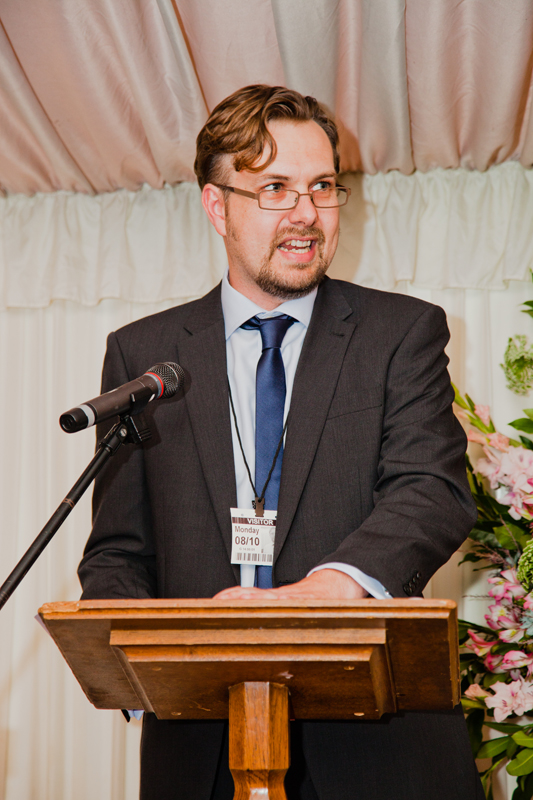 Who's Who - Sixty Second Interview with Ant Miller, BBC and Chair of the Digital Preservation Awards 2012 Judging Panel
Who's Who - Sixty Second Interview with Ant Miller, BBC and Chair of the Digital Preservation Awards 2012 Judging Panel
Where do you work and what's your job title?
I work in BBC Research & Development, and my job title is Senior Research Manager.
Tell us a bit about your organisation
We are a major public service broadcaster, but that much you know. We are also custodians of a colossal multi-media archive of radio, music, TV, written materials, photographs, sheet music and many other items. For the most part that has built up over the years as a resource for program making, but technology, audience expectations, and the whole infrastructure of archives and the wider media world are changing, so the expectations and aspirations for that archive are developing too.
What projects are you working on at the moment?
The team are looking at a range of archive projects from massive scale storage to advanced automated metadata ascription, and several collaborative frameworks that cover many more besides.
How did you end up in digital preservation?
I developed a number of infrastructure systems inside the library and project managed a few migrations of catalogue systems, and then became involved in the main preservation effort. With my background I tended to focus on the unsolved technical problems that needed new techniques and before long these were R&D projects rather than operational. In the R&D domain many if not all of the challenges are around digital asset preservation.
What are the challenges of digital preservation for an organisation such as yours?
Scale is a huge issue for video, and that’s where a lot of our issues come from. The sheer volume of bits produced by digitising a film recorded TV show from the archives is enormous, and that sets constraints on the technologies we can use for holding all our assets. Volume, and I/O channels are all pushed to the limit when moving around the very large objects that video produces.
The time dimension of the assets themselves is another particular challenge with manifold implications too- time means that metadata for an asset may need to be scene, shot or even frame accurate, and any transfer process of old assets into digital has a maximum through put, typically 25 frames per second (50 interlaced). Video isn’t the same as documents, raw data, or even photographs, and these differences can be very counterintuitive.
What sort of partnerships would you like to develop?
We’re very lucky that our partners in the digital preservation projects we have undertaken read like a who’s who of the European digital video archives. What would be interesting for the future is developing new partnerships to explore access to the archives. Search and retrieval for non-expert users, metadata ascription, and even navigation, such seemingly simple problems, all pose real difficulties when you apply them to an 80 year multimedia archive. We, and colleagues in I&A and Archives Access are always interested in meeting teams with new tools for tacking these sorts of problems.
If we could invent one tool or service that would help you, what would it be?
I’d really like a high fidelity emulator of Dr Richard Wright- he was mentor and colleague for several years in the BBC archives and here at R&D, and now he has retired (and is busier than ever) I think it would be very handy to have his wisdom and insight available on the desktop. He did set up the Digital Preservation wiki before he left though, so I suppose that’s pretty close: http://www.bbcarchive.org.uk/pmwiki/
And if you could give people one piece of advice about digital preservation ....?
Welcome to a new set of problems. For those migrating their assets from the analogue to the digital domain you should know: This is not a universal panacea. Your monolithic challenges associated with that tape carrying that signal on that machine that fits that shelf is now a multivalent nest of asynchronous refresh cycles, and if you’re going to make a success of the job and get the best from your systems and people, you must embrace this new more fluid environment. Have very robust unique identifiers, know that as soon as you build something it is on the way to obsolescence, never put anything into a system until you know how you will get ALL of it out.
And above all, know that someone, somewhere has seen this problem too- and even if they haven’t fixed it, they’ll probably share the pain over a pint.
If you could save for perpetuity just one digital file, what would it be?
Nothing lasts forever.
But if we are dealing with the hypothetical perpetual, I’d have to save something that was accessible without too much technology, and still expressed a sense of the richness and beauty of the human experience. So, pushing the edge of what digital actually means, Matsou Basho’s “Narrow Road to a Far Province” published in Grade 2 Braille, and I’d add a preface that scaffolded the language from a sequence of primes.
Finally, where can we contact you or find out about your work?
Our departmental website is bbc.co.uk/rd/ and has details of all our projects, and includes contact details for the teams working on various areas.
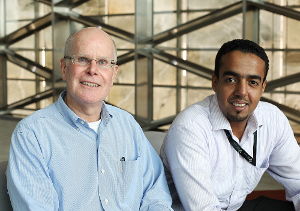 One World - Looking Forward to Preservation
One World - Looking Forward to Preservation
Mohamed Ba-Essa and Richard Johnson, University Library, King Abdullah University of Science and Technology
King Abdullah University of Science and Technology (KAUST), located on the Red Sea coast one-hour north of Jeddah, Saudi Arabia, was founded in 2009 as an initiative of the Saudi king (and university namesake). The 36 square kilometer campus, which includes a new town and amenities to accomodate the university personnel and students, are a marvel of execution, having been designed and built in just three short years. The result is a gleaming, modern facility designed to nurture developments that will contribute to a better future for the people of Saudi Arabia.
Focused exclusively on graduate education and research, KAUST’s aim is to create economic opportunity by advancing scientific and technological research in four broad areas: Water, Food, Energy and Environment. To accomplish this, the university has brought together leading faculty, post-docs, staff, and graduate students from throughout the world and given them access to state-of-the-art labs and excellent funding.
As a new institution with a new library and no legacy collections, preservation priorities have naturally been framed with a forward-looking perspective. They are viewed as part of a long-term program of knowledge management in which the University Library and the institution’s highly centralized Information Technology department play leading and collaborative roles.
Our early efforts have focused on building two key foundations:
1. Research Outputs
We believe that marshaling and maintaining KAUST research outputs in a digital repository will leverage the value of the institution’s research investment by:
- Providing persistent access to university intellectual assets, including gray literature (e.g., technical reports, conference papers, etc.) and research data, in order to document and share new knowledge created at KAUST.
- Expanding citation of KAUST research, which contributes to increased awareness of and growing prestige for our new and ambitious university.
- Showcasing the intellectual product of KAUST researchers, which supports graduate student and post-doc recruitment and development of international research networks and collaborations.
Although planning for the institutional repository was initiated by library staff within weeks of the university’s opening, implementation began only after a variety of underlying technologies and processes at the university were stabilized. During this build-up period, the library and IT teams evaluated a number of issues (e.g., technology selection, hosting strategy, depositor authentication) and recruited and trained staff for the program.
A decision was made to adopt the DSpace platform because it allowed us to get a fast start and ensured flexibility to move to other technologies when/if warranted in the future. We also decided to host in ”the cloud”, selecting a UK vendor in a competitive bidding process. By doing so, we avoided using precious internal IT resources and also accelerated our start.
For the better part of a year, we operated the repository in a pilot phase, during which we worked with a limited selection of depositors and file types. This provided valuable experience in working through questions relating to keyword indexes, workflow, item formats, authority control, and copyright.
Our initial collection in the archive was student theses. In the months before the institution’s first theses were approved, we successfully worked to implement a university policy that called for submission of a digital copy of thesis and dissertations to the library (and conveyance of a usage license) as a condition of graduation. Working with this uniform body of documents in a controlled environment proved to be a useful and confidence-building training exercise in preparation for formal launch of the archiving service. At the same time, we began working with several early adopters from the faculty to get a broader understanding of the challenges as we moved to a more diverse environment.
In September 2012 we formally launched the KAUST Digital Archive. The emphasis of our current work focuses on expanding internal awareness of the archiving service and working individually with KAUST faculty members to set up and begin populating their collections. The repository staff works closely with the library subject specialists to identify opportunities and develop relationships with the faculty. While we anticipate that researchers will often be indifferent to adopting preservation practices or to taking on the effort of depositing their works, we believe that a simplified deposit workflow will make the case easier to make and that availability in DSpace of statistical reports on viewing and downloading will provide a compelling illustration of the benefits.
As we look beyond current efforts to expand voluntary archiving and gain hands-on experience, we have begun to focus on several related knowledge management initiatives. These include: building up an educational program for faculty on management of their copyrights; encouraging the adoption of institutional policies on preservation of research; evaluating the kinds of services we might develop to leverage the value of the archive; and developing a program of research data management.
2. Institutional Records
Like most institutions, KAUST creates a flood of administrative records in both digital and paper form. The University Records Policy, issued in spring 2011, aims to “ensure the creation and management of authentic, reliable, complete and readily accessible records, capable of supporting the University’s operations for as long as those records are required.” Responsibility for the policy is jointly vested in the Chief Information Officer and the Librarian.
At this early stage, we are working department-by-department to build a registry that identifies the location, custodian, format, retention period, and other key facts about each key records series. This process involves completion by each unit of a survey and subsequent interviews with library staff to refine the information. In addition to taking the lead in developing the registry, the library offers a secure compact storage facility which is being used by several university units to store and control access to physical archives. A University Archivist will soon be added to the library staff to oversee the records management program and also organize a program to capture and organize records of KAUST’s history.
In addition to cooperating with the library on development of a records registry, KAUST IT is working with various units to develop digital storage and preservation plans for various records categories. Already in use is a substantial archive of architectural and engineering records of the university’s physical plant. A wide range of digital records from the early stages of KAUST’s inception, now housed on an orphan system will be moved into the mainstream of the digital preservation program.
----------------
In many ways, it would seem that implementing a digital archiving program at a new university would be far simpler than at a long established or less centralized institution. But while others may face far more daunting challenges of scale and diversity, at KAUST our key challenge seems to be an environment that is fast evolving. Every system is new, every process immature. Nevertheless, by rigorously prioritizing our efforts, carefully building and adapting processes, and making a strategic commitment to staff training and development, we believe we are building a program that already has begun to deliver value to our young university.
































































































































Read more...